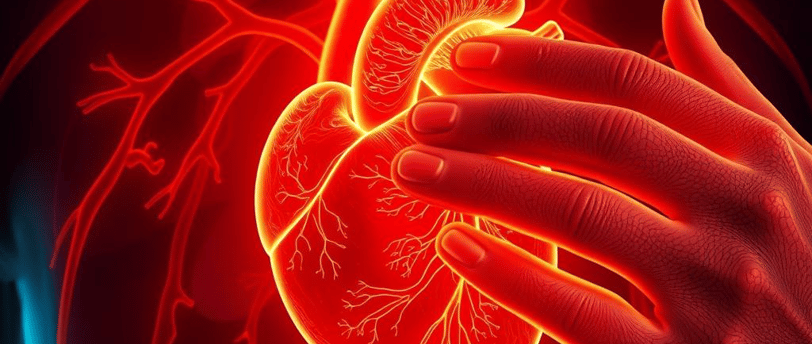Herbal Remedies for Coronary Heart Disease: A Comprehensive Guide
Blog post description.
🌿HERBAL REMEDIES


Coronary heart disease (CHD), also known as ischemic heart disease, is one of the leading causes of mortality worldwide. Characterized by the narrowing or blockage of coronary arteries due to plaque buildup, this condition restricts blood flow to the heart, leading to potential complications such as heart attacks, angina, and heart failure. While conventional treatments such as medication, lifestyle changes, and surgical interventions remain the cornerstone of therapy, interest in herbal remedies as a complementary approach has grown significantly. This article explores the forms available, common symptoms of CHD, the causes, recipes using herbal ingredients, appropriate dosage, side effect precautions, and the scientific evidence supporting these remedies.
Understanding Coronary Heart Disease
Before delving into herbal remedies, it is essential to understand the fundamentals of CHD, its symptoms, and causes to appreciate how natural treatments may complement conventional care.
Common Symptoms of Coronary Heart Disease:
Chest pain or discomfort (angina)
Shortness of breath, especially during physical activity
Fatigue or weakness
Nausea or dizziness
Sweating
Causes of Coronary Heart Disease:
Atherosclerosis (plaque buildup in the arteries)
High blood pressure
Smoking
High cholesterol
Obesity
Diabetes
Physical inactivity
Poor dietary habits
Herbal Remedies for Coronary Heart Disease
Herbs and plant-based supplements have long been used in traditional medicine to support heart health, improve circulation, and reduce the risk of coronary heart disease. Below is a list of scientifically backed herbs, along with their forms available, recipes, proper dosage, and precautions.
1. Hawthorn (Crataegus spp.)
Uses and Benefits:
Hawthorn is widely recognized for its cardiovascular benefits. Studies suggest it can improve heart function, lower blood pressure, and enhance oxygen supply to the heart muscle. Its antioxidant properties also help reduce oxidative stress that contributes to atherosclerosis.
Forms Available:
Capsules
Tinctures
Dried berries or leaves for teas
Recipes:
Hawthorn Tea: Brew 1-2 teaspoons of dried hawthorn berries or leaves in a cup of hot water for 10-15 minutes. Add honey for sweetness.
Dosage:
300–600 mg of standardized hawthorn extract, taken 2-3 times daily.
Side Effect Precautions:
Hawthorn is generally safe, but excessive use may cause dizziness, nausea, or low blood pressure. Pregnant and breastfeeding women should consult a healthcare provider before using hawthorn.
2. Garlic (Allium sativum)
Uses and Benefits:
Garlic is renowned for its ability to lower cholesterol levels, reduce blood pressure, and prevent platelet aggregation. Allicin, the active compound in garlic, has powerful antioxidative and anti-inflammatory properties.
Forms Available:
Raw cloves
Garlic oil
Capsules or tablets
Recipes:
Garlic Honey Paste: Crush 2-3 garlic cloves and mix with 1 tablespoon of raw honey. Consume 1 teaspoon of this paste daily.
Dosage:
600–1,200 mg of garlic extract daily, divided into several doses.
Side Effect Precautions:
Overconsumption of garlic may cause bad breath, upset stomach, or increased bleeding risk, especially for those on blood-thinning medication.
3. Turmeric (Curcuma longa)
Uses and Benefits:
Curcumin, the active compound in turmeric, helps alleviate systemic inflammation—a key contributor to coronary heart disease. Turmeric may also reduce bad cholesterol (LDL) and improve arterial function.
Forms Available:
Fresh root
Powder
Capsules or standardized extracts
Recipes:
Golden Milk: Mix 1 teaspoon of turmeric powder, 1 cup of plant-based milk, 1/2 teaspoon of cinnamon, and a pinch of black pepper. Sweeten with honey if desired.
Dosage:
500–2,000 mg of curcumin extract daily, taken with meals to enhance absorption.
Side Effect Precautions:
High doses of turmeric may cause digestive upset. Individuals with gallbladder issues or those on blood thinners should use turmeric cautiously.
4. Ginger (Zingiber officinale)
Uses and Benefits:
Ginger has anti-inflammatory and antioxidant effects, which can support heart health by preventing platelet aggregation and reducing cholesterol and blood sugar levels.
Forms Available:
Fresh root
Powder
Capsules or teas
Recipes:
Ginger Lemon Tea: Boil 1-2 inches of fresh ginger in water for 10 minutes. Add lemon juice and a dash of honey.
Dosage:
1–2 grams of ginger per day, divided into smaller doses.
Side Effect Precautions:
Excessive ginger intake may cause heartburn or interact with anticoagulant drugs. Limit intake during pregnancy or consult a healthcare provider.
5. Ginkgo Biloba
Uses and Benefits:
Ginkgo biloba is known for improving blood circulation and preventing arterial blockages. Its antioxidant properties may protect against lipid oxidation—a process that contributes to plaque buildup.
Forms Available:
Standardized extract
Capsules
Teas
Dosage:
120–240 mg of standardized Ginkgo biloba extract daily, divided into 2-3 doses.
Side Effect Precautions:
Though generally safe, Ginkgo may increase bleeding risk. It should not be combined with blood-thinning medications or used before surgery.
Scientific Evidence Supporting Herbal Remedies
Numerous studies support the cardiovascular benefits of these herbs:
A 2019 meta-analysis published in the Journal of Herbal Medicine confirmed that hawthorn helps reduce angina symptoms and improves exercise tolerance in CHD patients.
Research from the European Journal of Clinical Nutrition highlights garlic's ability to significantly lower LDL cholesterol and blood pressure.
A study in Pharmacological Research demonstrated curcumin's effectiveness in reducing inflammation markers associated with CHD.
Though promising, herbal remedies should not replace conventional medicine but serve as complementary therapies.
Side Effect Precautions
Herbal remedies, while natural, can interact with prescription medications or cause side effects when consumed inappropriately. Always consult a healthcare professional before starting any herbal treatment, especially if:
You are pregnant or breastfeeding.
You are taking medication for heart disease, diabetes, or blood pressure.
You have upcoming surgical procedures.
Conclusion
Herbal remedies such as hawthorn, garlic, turmeric, ginger, and Ginkgo biloba offer valuable support for individuals with coronary heart disease. With their antioxidant, anti-inflammatory, and cholesterol-lowering properties, these herbs may complement traditional heart disease management strategies. However, understanding the correct forms available, preparing recipes properly, sticking to recommended dosages, and observing side effect precautions are essential. Always rely on scientific evidence and consult your healthcare provider before incorporating herbal remedies into your regimen.
References:
Journal of Herbal Medicine (2019)
European Journal of Clinical Nutrition (2020)
Pharmacological Research (2021)
